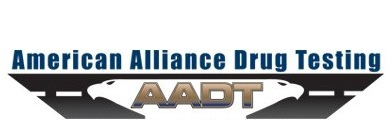Supreme Court Rules Against Warrantless DUI Blood Tests
In a divided ruling, the U.S. Supreme Court handed down a decision on April 17 that makes suspect DUI testing (of alcohol or drugs) a little bit more challenging for law enforcement. The court held that Missouri police violated the 4th Amendment by obtaining a warrantless and nonconsensual blood sample from a man suspected of drunk driving.
At issue in Missouri v. McNeely was the question of whether or not the rapid diminishment of alcohol in a suspect’s bloodstream should entitle the police to enjoy a blanket emergency exception to the 4th Amendment when it comes to seeking blood tests in drunk-driving cases.
Writing for a majority that also included Justices Antonin Scalia, Anthony Kennedy, Ruth Bader Ginsburg, and Elena Kagan, Justice Sonia Sotomayor held that the actions of the Missouri police violated the Constitution and, more significantly, rejected the government’s sweeping argument in favor of a blanket 4th Amendment exception.
Get a Warrant on DUI
While “in some circumstances law enforcement officers may conduct a search without a warrant to prevent the imminent destruction of evidence,” Sotomayor wrote, “it does not follow that we should depart from careful case-by-case assessment of exigency and adopt the categorical rule proposed by the State and its amici. In those drunk-driving investigations where police officers can reasonably obtain a warrant before a blood sample can be drawn without significantly undermining the efficacy of the search, the Fourth Amendment mandates that they do so.”
In addition to Sotomayor’s majority opinion, Chief Justice John Roberts filed an opinion concurring in part and dissenting in part, which was joined by Justices Stephen Breyer and Samuel Alito, and Justice Clarence Thomas filed a lone dissent.
The Missouri Association of Prosecuting Attorneys (MAPA) President Eric Zahnd released the following statement in reaction to the Supreme Court’s decision on warrantless blood draws:
“The United States Supreme Court ruled today on the Missouri case regarding whether police can obtain a blood draw from someone suspected of drunk driving without first obtaining a search warrant. While the Court stopped short of adopting a bright line rule that would allow police to obtain warrantless blood draws in every case, it held that the natural dissipation of alcohol in blood may support that practice. Missouri’s prosecutors will continue to work vigorously with our law enforcement partners to maximize public safety by ensuring that DWI cases are investigated and prosecuted to the fullest extent possible.
“Although the question of whether a warrantless blood test of a drunk or drugged-driving suspect is permissible will continue to be determined case-by-case, such tests will remain an arrow in the quiver of law enforcement in appropriate circumstances. Drunk driving suspects who refuse to provide a breath or blood sample are tampering with evidence of their crime, and MAPA supports Rep. Don Phillips’ HB461, which makes it clear that such actions are against the law. In the end, aggressive investigation and prosecution of DWI cases is one of the best homicide prevention strategies we can implement.”



